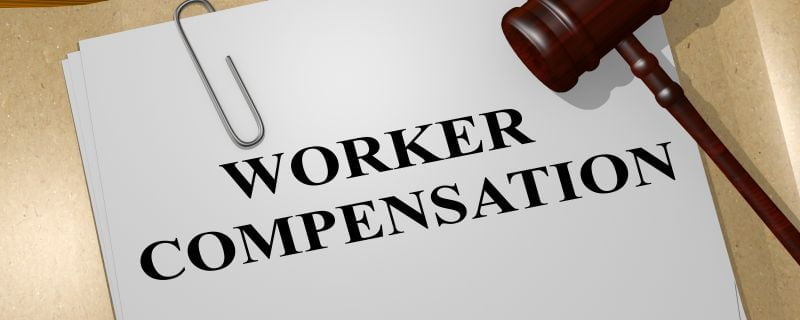
by condormarketing
Head and Brain Injury Attorneys
If you have suffered a head injury on the job and are preparing to file a workers’ compensation claim, you probably have a lot of questions about what to expect during the process. Do all workers’ comp cases end in a settlement? How often do workers’ comp cases go to trial? Our team of head and brain injury attorneys Atlanta at Bobe & Snell Law Office LLC is ready and more than happy to answer all of your questions meticulously and comprehensively. Furthermore, we will help you navigate the Georgia workers’ compensation process while ensuring that you get everything right from the onset until you get the compensation that you deserve.
Do All Workers’ Comp Cases End in a Settlement?
Most workers’ compensation cases end in settlement, with the injured worker accepting one lump sum of money. The settlement amount is intended to cover the cost of past and future medical care relating to the injury, partial or total disability, or temporary or permanent disability.
How Often Do Workers’ Comp Cases Go to Trial?
Approximately 5% of workers’ comp cases go to trial. If you are unsatisfied with the settlement amount you were offered or your employer’s workers’ comp insurance company has denied your claim, your attorney would take your case to trial.
What Factors Affect the Odds of Winning a Workers’ Comp Case?
There are several factors that can help to increase your odds of winning a workers’ comp case, including:
- Don’t Delay Reporting Your Claim: Following an injury on the job, you should report it to your employer as soon as possible without delay.
- Seek Prompt Medical Treatment: Don’t delay seeing a doctor to have your head injury treated. While there, be sure to explain that the injury happened at work. Follow your doctor’s exact recommendations, be it physical therapy, resting the injured body part, etc.
- Hire an Experienced Workers’ Comp Attorney: It is not technically a requirement to have an attorney with you at your hearing, but it is strongly recommended for success. Your hearing is the time to convince the judge that you are entitled to workers’ comp benefits, so you will want to have someone advocating for you who can make strong legal arguments and present solid evidence.
Settling a Workers’ Comp Claim Out of Court
Taking a workers’ compensation case to trial can put you through a lot of stress — on top of the stress you have already experienced as a result of your injury. Thankfully, as we noted above, most cases can be settled outside of court. Here is some more information on the process of settling a workers’ comp claim:
- The typical way to start settlement negotiations is to have your attorney present the insurance company with a settlement demand. The insurance company will either accept the demand, reject it, or respond with a new offer. Settlement negotiations will continue until you reach an amount you feel is fair.
- The settlement amount you are offered will depend on several factors, including but not limited to: your medical records, your job duties, and the circumstances of your injury.
- Once you have agreed to a settlement amount from the insurance company, it needs to be sent to the Georgia State Board of Workers’ Compensation, where an arbitrator will review the settlement contract to determine whether it is reasonable and free of error.
Should I Hire a Workers’ Comp Attorney, or Can I Handle My Own Case?
If you have suffered a work-related head injury or illness, you may be wondering whether to hire a workers’ compensation attorney. The answer depends on the severity of your head injury, the overall complexity of your case, and the actions of your employer (or its insurance company).
Learn about which work-related injuries you can probably deal with on your own—and the severe situations – such as traumatic brain injury (TBI) – when you will need help from Atlanta head and brain injury attorneys to get the benefits you deserve.
When You Can Probably Represent Yourself
Generally, you may be able to get by without an attorney if all of the following statements are true:
- You suffered a minor workplace injury, such as a twisted ankle or a cut requiring a few stitches.
- Your employer admits that the injury happened at work.
- You missed little or no work due to your injury.
- You don’t have a pre-existing condition that affects the same part of your body as the recent workplace injury (such as an old back injury from a car accident that was there before you slipped and hurt your back on the job).
Even in these relatively uncomplicated situations, it is often a good idea to consult a workers’ compensation attorney about your case. The lawyer can walk you through the process, alert you to potential pitfalls, and give you an honest appraisal of whether you can handle the case on your own.
When to Hire a Lawyer
The moment any complexity arises in your case is the moment you should hire an attorney. Here are some examples of situations that call for a lawyer’s intervention:
- Your employer denies your claim or doesn’t pay your benefits promptly. Employers and workers’ comp insurers routinely reject bona fide workers’ comp claims, confident that many workers will fail to appeal. Unfortunately, they are usually correct. Hiring a workers’ comp attorney costs nothing upfront, and it gives you the best chance to receive a fair settlement or award for your injuries.
- Your employer’s settlement offer doesn’t cover all your lost wages or medical bills. If you are not sure a settlement offer is good enough, don’t rely on the workers’ compensation judge to make sure that you are getting a fair deal. Although workers’ comp settlements must have judicial approval, judges will usually sign off on any agreement as long as it is not grossly unfair. If you really want someone to get you the best settlement possible, have an attorney by your side.
- Your medical issues prevent you from returning to your prior job, limit what you can do at work, or keep you from performing any work at all. If you have suffered permanent disability—whether partial or total—you may be entitled to weekly payments (or a single lump sum) to make up for your lost wages. These cases can be very expensive for insurance companies, and they will often stop at nothing to avoid paying you what you deserve. The knowledge, experience, and expertise of Atlanta head and brain injury attorneys are indispensable in cases involving permanent injuries or illness.
- Your boss retaliates against you for filing a workers’ comp claim. If your employer has fired you, demoted you, reduced your pay, slashed your hours, or engaged in any other form of discrimination because you filed a workers’ comp claim, you should contact a workers’ comp attorney immediately to protect your legal rights.
- You receive or plan to apply for Social Security disability benefits. If your settlement isn’t structured properly, your workers’ comp benefits could significantly lower Social Security disability payments. An experienced attorney will understand how to draft your settlement agreement to minimize or eliminate this offset.
- You were injured because of a third party’s actions or your employer’s serious misconduct conduct. The workers’ comp system was designed to prevent civil lawsuits for work-related injuries. However, you are permitted to sue outside workers’ comp in certain situations, including when someone other than your employer contributed to your injury (such as a negligent driver who hit you while you were driving for work), your employer doesn’t have workers’ comp insurance, or your employer intentionally caused your injury. An experienced workplace injury lawyer will be able to explain how the law applies to your situation.
What Your Attorney Will Do for You
In addition to making sure you file all the necessary forms and meet the deadlines, an experienced attorney will know how to gather the evidence needed to support your case, negotiate effectively with the insurance company, and write a settlement agreement to avoid unanticipated consequences.
If you can’t agree on a good settlement, your attorney can prepare for and represent you at the hearing or trial.
Tilting the Scales in Your Favor!
The workers’ compensation system may have been intended to provide prompt and fair compensation to injured workers. But now, it seems to work mostly for the benefit of employers and insurers.
Moreover, insurance companies have teams of highly trained workers’ comp lawyers on their side. Hiring a seasoned workers’ comp attorney will go a long way toward tilting the scales in your favor. And because of the way workers’ comp attorneys charge for their services, your lawyer will only receive a limited percentage of what you win.
If you are in any doubt about your ability to handle your claim yourself, don’t hesitate to call our workers’ comp attorney for a free consultation. Whether your workers’ comp case is brought to trial or settled through negotiation, you can count on the head and brain injury attorneys at Bobe & Snell Law Office LLC to look out for your best interests ardently.
Head and Brain Injury Attorneys
Just like the many clients we have helped get a favorable settlement or verdict over our years in practice, we want to see you get the benefits you deserve. Call us now at (470) 268-5802 or contact us online today to get started with a FREE, no-obligation consultation/case review.

Head and Brain Injury Attorneys

by condormarketing
Traumatic Brain Injury Settlement
Traumatic Brain Injury Settlement: Getting a Fair Amount from Your Workers’ Comp Settlement.
If you’ve suffered a work-related injury or illness that left you with some type of lasting impairment—a physical or mental problem that limits your ability to work—you may be eligible to receive permanent disability benefits from your employer’s workers’ comp insurer. You can simply accept what the insurance company has decided to pay you, in which case you will receive weekly checks for a certain period. But keep in mind that a traumatic brain injury settlement agreement can’t be undone, and therefore, you shouldn’t sign one without researching the law or hiring an experienced and reputable workers’ compensation lawyer.
If you disagree with the amount of money you are owed or you want a different payment set-up, you have two options:
- negotiate a settlement with the insurance company, or
- go to a hearing or trial and have a judge rule on the dispute.
There are advantages to settling, but there are potential pitfalls as well. Before you agree to a settlement, you should understand the consequences.
Types of Workers’ Comp Settlements
In most states, you can negotiate a settlement that will provide you with a lump sum of money rather than continuing weekly permanent disability payments. The settlement may also include an amount for future medical care, as well as money the insurer owes you for overdue temporary disability benefits and unreimbursed medical expenses.
You can also negotiate an agreement for a structured settlement that will provide you with payments over a period of time. In these settlements, you don’t need to give up all of your future rights to medical care (in fact, you can’t do that in some states; more on this below).
Pros of Accepting a Settlement
There are several advantages to workers’ comp settlements, including:
- It can take a long time to get to a hearing, and the process can be difficult. Agreeing to a settlement can save you time, hassle, and anxiety.
- If you go to trial (called a workers’ comp hearing in some states), the judge could end up deciding that you will get less money than what the insurance company offered. It doesn’t happen often, but it is a risk.
- In some states, you can’t receive a lump-sum payment after you win at trial; you will be limited to receiving weekly payments for a number of weeks or years.
- In a settlement, the insurance company may agree to pay you money in exchange for giving up your right to future benefits that you might never use. For example, if your doctor says that there is a 15% chance you will need hand surgery in the future, you can ask the insurance company to pay you part of the cost of the surgery now. You probably won’t need the surgery, in which case you will be ahead financially.
Cons of Accepting a Settlement
Agreeing to a settlement also carries some potential risks, such as:
- If there is a good chance that you will need surgery or expensive medicines down the road, it could be risky to give up your right to payments for future medical treatment in return for a lump sum. If it turns out that you do need that medical treatment, the amount you received in the settlement may be long gone or simply not enough to cover your bills for copays and deductibles under your regular health insurance.
- Some people who have agreed to a lump-sum permanent disability payment will need or be tempted to spend the money right away. Then they will be left without weekly payments to help make up for lower wages because of the ongoing disability.
- If you aren’t careful, the settlement could reduce other types of benefits in the future.
What Your Settlement Should Include
Consider whether each of the following types of benefits is part of your traumatic brain injury settlement Atlanta.
-
Permanent Partial Disability
You don’t have to be completely disabled or unable to work at all to receive any permanent disability benefits through workers’ compensation. You will probably be entitled to permanent partial disability (PPD) benefits if you lost a body part (like a finger or hand) or you are limited in what you can do at work.
For instance, your doctor may have said you should not lift anything over 25 pounds, walk on uneven surfaces, or sit for longer than two hours at a time. Your limitations could lower the amount you can earn in the future. Even if you aren’t restricted in any way from your injuries, you can ask for compensation for permanent scarring and disfigurement.
Before settlement negotiations begin, the insurance company should send you what is known as a permanent disability rating. That rating can then be converted into the amount of benefits you are owed under state law.
In California, for instance, if you have a 40% permanent disability rating, the insurance company will owe you 280 weeks of PPD payments at two-thirds of your average weekly earnings, with minimum and maximum amounts that change regularly. (Cal. Labor Code §§ 4453, 4658(e) (2021).)
The insurance company may use your rating to come up with a starting settlement amount, but you may want to ask for a moderately higher amount for permanent disability compensation, plus the cost of future medical treatment and any past-due temporary disability benefits.
-
Permanent Total Disability
Some states have different rules for calculating benefits when employees are totally disabled as a result of their injury, or they have a PPD rating above a certain percentage. Often, the employees may receive life pension awards in addition to permanent disability payments.
If you have a total permanent disability, you shouldn’t try to handle settlement negotiations on your own. The calculations are complicated, and the consequences are serious when you’re facing a lifetime of needs without income. You need to hire an experienced workers’ comp attorney Atlanta to protect your rights and your future.
-
Past-Due Temporary Disability
If the insurance company didn’t pay you the right amount of temporary disability (wage loss) benefits while you were off work and recovering—or just did not make some payments—your settlement should include the balance that the company owes you.
Many states require a penalty for late payments (calculated as a percentage of the past-due amount). That penalty can add up to a lot of money, so you should consult with a traumatic brain injury lawyer if the insurance company paid you too little or too late.
-
Medical Treatment
The settlement should include any unpaid bills for past medical treatment. As for future medical costs, there are two different ways of dealing with them in settlements, depending on the law in your state:
- You may be able to settle your right to disability payments but keep your right to have the insurance company pay for your future medical treatment.
- You might instead settle on a lump-sum payment now for future medical treatment, in return for giving up your right to have the insurer pay those bills when they come up. In some states, however, employees can’t legally waive that right; they can always go back to the insurance company to get reimbursed for any medical treatment for the work-related injury or illness.
If you choose the lump-sum option, you should estimate your future costs for doctors’ visits, surgery, hospital stays, physical therapy visits for flare-ups, and medications. Then consider what the worst-case scenario would be if your medical condition deteriorates.
The insurance company won’t pay 100% of your anticipated costs and may try to pay only around 25%. But you can ask for 75% of your estimated future medical expenses. It helps your negotiating position if you can provide a strong opinion from your doctor that you will need continued medical care or surgery in the future.
Settlement Structure
The actual wording of the settlement can be important to protect your right to other types of benefits in the future. This is where the fee for a workers’ comp attorney can really pay off.
For example, say you apply for and receive Social Security disability benefits. Those benefits could be lower because of your settlement—if it was not worded in a certain way.
Also, before you sign any settlement agreement, make sure you clearly know the answer to these two questions:
- Will your workers’ comp claim be completely closed following the settlement, or will it stay open (or can it be reopened) to pay for future medical costs?
- Does the settlement amount represent all new money, or does it include permanent disability advances that you have already received?
The details of a workers’ comp settlement can be tricky. Unless your permanent disability is rated 10% or less, you should strongly consider speaking to a workers’ comp lawyer about your options for traumatic brain injury settlement and what a fair amount would be for someone with your medical impairments.
Judge’s Review of the Settlement
In most states, a workers’ comp judge will have to review your settlement before it becomes official. This will take place at an informal conference. If you are not represented by a lawyer, the judge may attempt to make sure the settlement is fair to you. But without knowing your medical history, the judge is limited in helping you.
Contact Our Attorney to Evaluate Your Settlement Offer
It is a good idea to consult with an attorney who specializes in workers’ compensation claims and cases to find out if your settlement offer is fair. Often an attorney can negotiate a higher settlement with the insurance company than you could do on your own.
Traumatic Brain Injury Settlement
In that case, you will still come out ahead after the attorney’s fee is taken out of your settlement, because workers’ comp lawyers generally charge a percentage of what you receive.
Contact Bobe & Snell Law Office LLC to find an experienced, reputable, dedicated, and professional traumatic brain injury attorney whom you can consult about your workers’ comp case and the settlement offer (if you have had any).
Call us now at (470) 268-5802 or get in touch with us online to schedule a FREE, no-obligation consultation/case review today.

Traumatic Brain Injury Settlement







